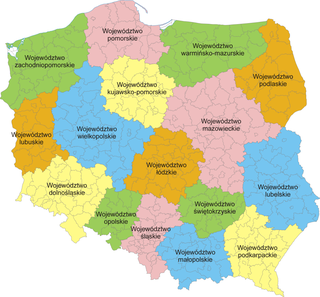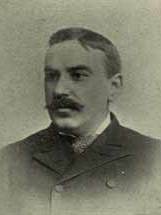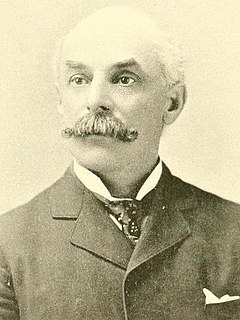
Bielsko-Biała(listen) is a city in southern Poland with a population of approximately 171,505. The city is a centre of the 325,000-strong Bielsko Urban Agglomeration and is a major industrial, transport, and tourism hub. Located north of the Beskid Mountains, Bielsko-Biała is composed of two former cities on opposite banks of the Biała River, Silesian Bielsko and Lesser Poland's Biała, which merged in 1951.

A powiat is the second-level unit of local government and administration in Poland, equivalent to a county, district or prefecture in other countries. The term "powiat" is most often translated into English as "county" or "district".

Paweł Bogdan Adamowicz was a Polish politician and lawyer who served as Mayor of the city of Gdańsk, Pomeranian Voivodeship, from 1998 until his assassination in 2019.
The title of starost or starosta is a Slavic term that originally referred to the administrator of the assets of a "clan, kindred, extended family". Since the Middle Ages, it has been used for both official and unofficial leadership positions, used in various contexts through most of Slavic history. In this respect, it resembles the word "elder" or "senior". In terms of a city or a municipality, a "starosta" was historically not a mayor as a supreme representative of an elected self-government, but a senior royal administrative official, most likely translated with the outdated title Seneschal, and analogous to a gubernator. In Poland, a starosta would administer a crown land territory or district called a starostwo.

Burgomaster is the English form of various terms in or derived from Germanic languages for the chief magistrate or executive of a city or town. The name in English was derived from the Dutch burgemeester. In some cases, Burgomaster was the title of the head of state and head of government of a sovereign city-state, sometimes combined with other titles, such as Hamburg's First Mayor and President of the Senate). Contemporary titles are commonly translated into English as mayor.

The administrative division of Poland since 1999 has been based on three levels of subdivision. The territory of Poland is divided into voivodeships (provinces); these are further divided into powiats, and these in turn are divided into gminas. Major cities normally have the status of both gmina and powiat. Poland currently has 16 voivodeships, 380 powiats, and 2,478 gminas.

The 2006 Polish local elections were held in two parts. with its first round on November 12 and the second on November 26, 2006. In the election's first round, voters chose 39,944 gmina councillors, 6,284 powiat councillors and 561 deputies to provincial voivodeship sejmiks. Additionally, 2,460 city and town mayors, borough leaders and other officials were decided by direct or runoff elections in the second round. The elections were seen as a test to the government of Prime Minister Jarosław Kaczyński, whose coalition between his own Law and Justice party and its junior coalition partners, the Self-Defense of the Republic of Poland and the League of Polish Families, had undergone a severe crisis two months prior.
In the Polish system of local administration, a dzielnica is an administrative subdivision or quarter of a city or town. A dzielnica may have its own elected council, and those of Warsaw each have their own mayor (burmistrz). Like the osiedle and sołectwo, a dzielnica is an auxiliary unit of a gmina. These units are created by decision of the gmina council, and do not have legal personality in their own right.

Robert Biedroń is a Polish LGBT activist, former mayor of Słupsk and politician. He was previously a member of the Social Democracy of the Republic of Poland party and the Democratic Left Alliance. Formerly a member of the Sejm and the mayor of Słupsk, he launched a new political party, called Spring in February 2019. He also serves on the board of the Polish Campaign Against Homophobia.

The 2010 Polish local elections were held in two parts, with its first round on 21 November and the second on 5 December. The first round included elections of deputies to provincial voivodeship sejmiks, as well for gmina and powiat councilors. The second round of elections were marked for mayors, borough leaders, and other positions decided by runoff elections. The local elections were seen as a test to the ruling Civic Platform and Polish People's Party coalition government under Prime Minister Donald Tusk.

The 1931 Chicago mayoral election was held to elect the Mayor of Chicago. Former Cook County Board of Commissioners President Anton Cermak defeated incumbent mayor William Hale Thompson by a 17 point margin of victory.

In the Chicago mayoral election of 1935 incumbent Edward J. Kelly defeated Republican Emil C. Wetten and independent candidate Newton Jenkins by a landslide 60% margin of victory

In the Chicago mayoral special election of 1893 John Patrick Hopkins was elected mayor. The election was triggered by the assassination of mayor Carter Harrison Sr.. Following Harrison's death, Republican George Bell Swift had been appointed by City Council to serve as mayor until the spedial election could be held. In the election, which was held December 19, Hopkins narrowly defeated Swift by a half-percent margin.

In the Chicago mayoral election of 1893 Democrat Carter Harrison Sr. won election to a (then-record) fifth non-consecutive term as mayor of Chicago.

In the Chicago mayoral election of 1911 Democrat Carter Harrison Jr. was elected to his fifth non-consecutive term as mayor, tying the then-record set by his father Carter Harrison Sr. for the most Chicago mayoral election victories. Harrison defeated Republican Charles E. Merriam and Socialist William E. Rodriguez.

The Chicago mayoral election of 1891 saw "Reform" candidate Hempstead Washburne narrowly win a four-way race against incumbent Democrat DeWitt Clinton Cregier, former mayor Carter Harrison Sr., and Citizens Party candidate Elmer Washburn. Also running was Socialist Labor candidate Thomas J. Morgan. Due to the four-way split in popular support, Washburne won with merely a 28.83% vote share and less than a quarter-of-a-percent margin of victory over second-place finisher Creiger.

In the Chicago mayoral election of 1895 Republican George Bell Swift was elected, winning a majority of the vote and defeating Democratic nominee Frank Wenter by more than a twenty point margin.

In the Chicago mayoral election of 1897 Democratic nominee Carter Harrison Jr. was elected, winning a majority of the vote and defeating independent Republican John Maynard Harlan, Republican nominee Nathaniel C. Sears, independent Democrat Washington Hesing, as well as several minor candidates. Harrison carried a 26.7 point lead over second-place finisher Harlan, a margin greater than Harlan's vote share itself.

In the Chicago mayoral election of 1901 Democrat Carter Harrison Jr. was reelected to a third term, defeating Republican candidate Elbridge Hanecy by a 9.5% margin of victory.

In the Chicago mayoral election of 1889 Democrat DeWitt Clinton Cregier defeated incumbent Republican John A. Roche, winning a majority of the vote and a margin of victory in excess of ten percent.




















